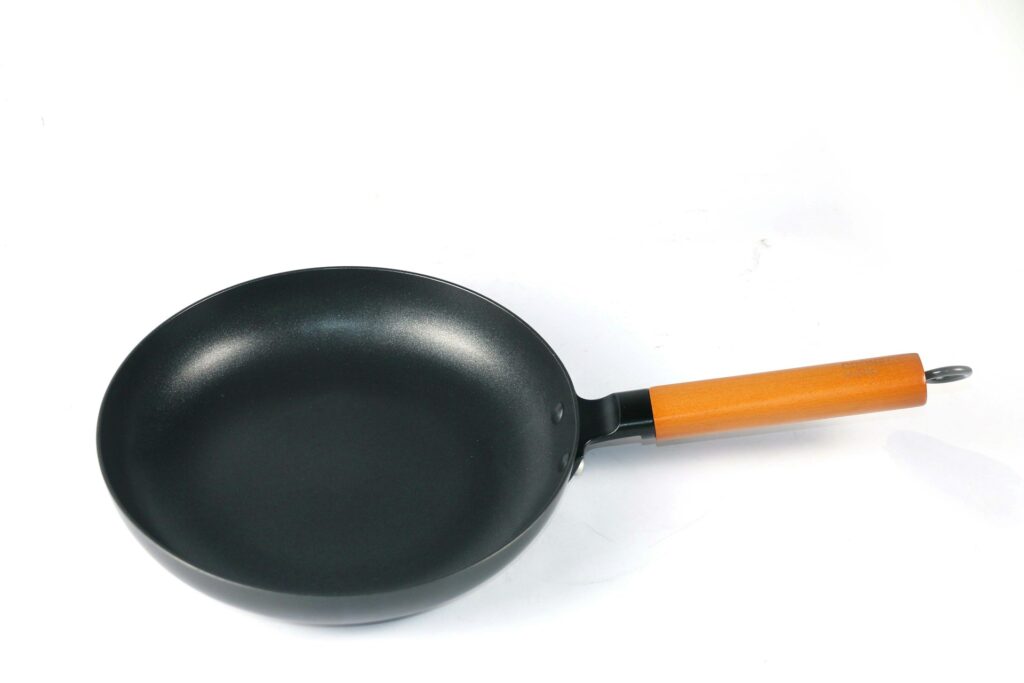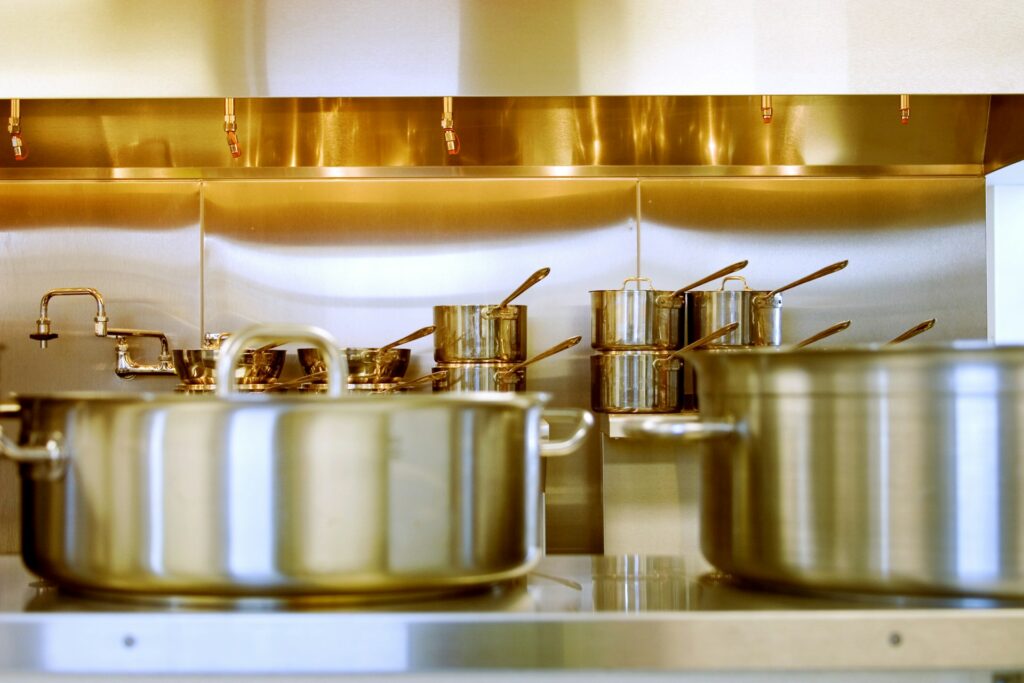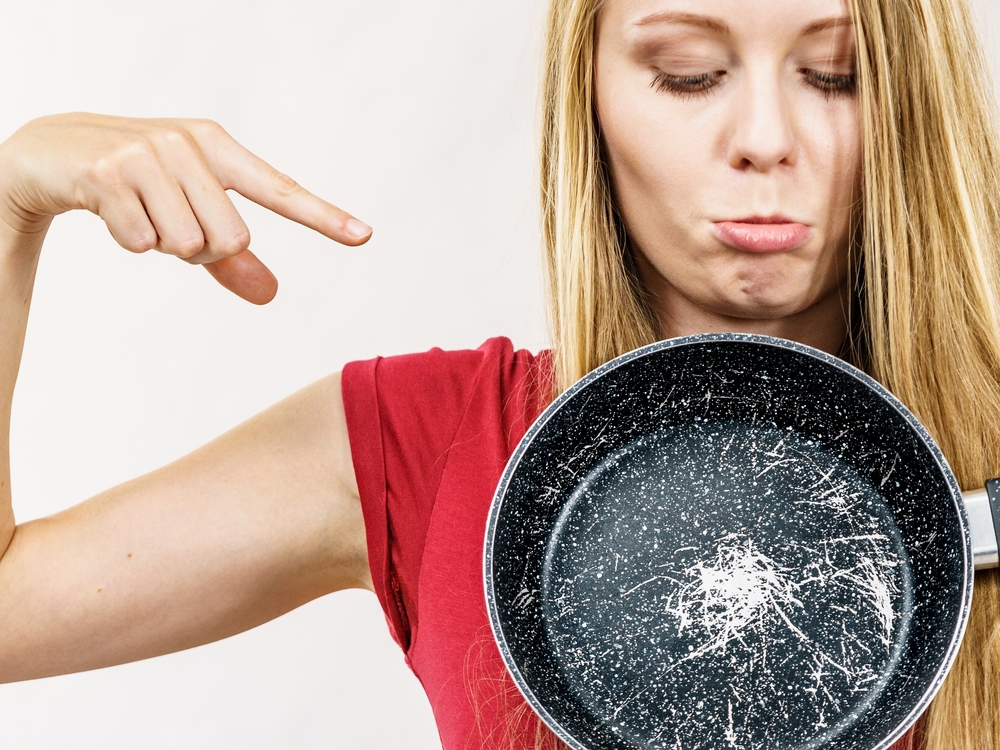Cookware is the backbone of every kitchen, yet many people unknowingly shorten its lifespan through simple mistakes. The materials used in pots, pans, and baking sheets are carefully engineered, but poor care habits can damage them beyond repair. By understanding the science behind how cookware reacts to heat, chemicals, and everyday use, you can avoid these costly errors. Here are nine common kitchen habits that secretly ruin your cookware and what to do instead.
Using Metal Utensils on Nonstick Pan

Nonstick coatings are designed to prevent food from sticking, but they are easily scratched by metal spatulas, forks, or whisks. Once the surface is compromised, the pan loses its nonstick properties and may release particles into food. Even high-quality nonstick coatings cannot withstand repeated scraping. Wooden, silicone, or plastic utensils are far safer choices and keep the surface intact for years.
Overheating Empty Pans
Heating an empty pan, especially one with a nonstick coating, causes the surface to break down at the molecular level. At extreme temperatures, nonstick coatings can release harmful fumes and warp the pan’s structure. Stainless steel and cast iron also suffer, as rapid heating can distort the metal. Always add oil, water, or food before turning on the stove to regulate temperature and protect the pan.
Putting Cookware in the Dishwasher
Although labeled “dishwasher safe,” many pans degrade faster when exposed to high heat, harsh detergents, and abrasive cleaning cycles. Nonstick coatings wear down, cast iron rusts, and aluminum discolors due to detergent reactions. Hand washing with mild soap and warm water is a safer method. This not only prolongs cookware life but also preserves performance.
Using Cooking Sprays
Cooking sprays leave a sticky residue on nonstick pans that builds up over time. This layer resists cleaning and eventually ruins the smooth surface, making food more likely to stick. The residue carbonizes under heat, further damaging the coating. A small amount of oil or butter applied directly to the pan provides the same nonstick benefits without the harmful buildup.
Storing Pans Improperly
Stacking pans without protective layers leads to scratches, dents, and chipped coatings. Nonstick and ceramic surfaces are especially vulnerable. Even stainless steel, while durable, develops scratches that affect cooking performance. To avoid this, place a soft cloth or paper towel between stacked pans. Hanging pans is another protective option that saves space while preventing damage.
Using Harsh Cleaners and Scouring Pads

Abrasive steel wool or harsh powdered cleaners strip protective layers from cookware. On nonstick pans, they destroy the coating. On stainless steel, they leave scratches that trap food particles. Cast iron seasoning is particularly fragile and can be scraped off entirely. Instead, use soft sponges or nylon brushes with mild soap. For stubborn stains, a paste of baking soda and water works without damaging surfaces.
Rapid Temperature Changes
Exposing hot cookware to cold water, a process called thermal shock, warps metal and weakens coatings. Glass and ceramic dishes are even more vulnerable, often cracking under sudden temperature shifts. Always allow cookware to cool naturally before rinsing or washing. This preserves the structure of the material and prevents irreversible damage.
Neglecting Proper Seasoning of Cast Iron
Cast iron relies on seasoning, a protective oil layer baked into the surface, to prevent rust and create a natural nonstick effect. Skipping this process or washing cast iron with soap removes the seasoning layer, leaving the pan vulnerable to corrosion. Maintaining cast iron requires re-oiling after cleaning and heating it briefly to lock in the protective layer.
Using the Wrong Tools for the Job
Not all pans are designed for every type of cooking. For example, acidic foods like tomatoes and citrus break down the surface of unlined cast iron and reactive aluminum. Similarly, deep frying in a thin pan can cause overheating and warping. Using cookware matched to the recipe, such as stainless steel for acidic dishes and heavy-bottomed pans for frying, preserves both flavor and durability.
Read More: How Growing Up with Critical Parents Shapes Everyday Speech: 7 Key Phrases
Disclaimer: This article was created with AI assistance and edited by a human for accuracy and clarity.
.

